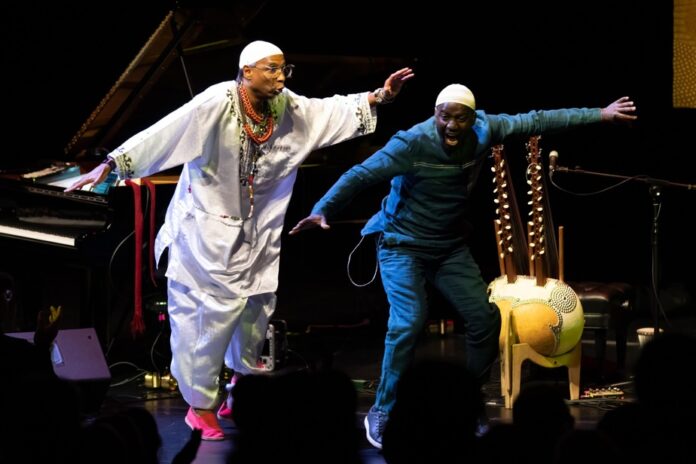Joined in Seattle in the middle of their North American tour which stops in Montreal for two concerts this weekend, seven-time Grammy-nominated Cuban pianist and composer Omar Sosa and Senegalese and kora player Seckou Keita are in the eye of our camera.
“This is our second stop in Seattle together, but my thirteenth in my career, I’m getting old, man!” “, admits the unrepentant pioneer Omar Sosa, 58, who spawned with spoken word, hip-hop, Indian music; for him as for others, borders do not exist.
“We are all brothers and sisters, he says, it is important to bond because it is in my humble opinion the best way to grow, to evolve. And it is with African musicians that I connect best. »
In 2009, he marked the 50th anniversary of the release of Miles Davis’ Kind of Blue with Afro-Cuban interpretations of the trumpeter’s classic. In 2003, he was honored by the Smithsonian Institute for his contribution to the influence of Latin jazz in the United States.
La Presse has already seen the wizard in action, plunging his head inside the cockpit of his piano to manually activate the hammers that strike the strings, wanting fiercely to extract new sounds from them!
We talk to him about the compadre pianist Chucho Valdés (July 6 at the FIJM) and the science of the clave, this unit of measurement of tempos so characteristic of Cuban music: “It’s the backbone of our music”, he admits.
Master of the kora and the djembe, Senegalese singer born into a family of griots and bards from generation to generation, Seckou Keita arrived in the United Kingdom at the age of 21 in the late 1990s.
“I assimilated all the basics of traditional Senegalese music and I needed to discover new musical genres while sharing my roots. »
Keita came twice to the Montreal International Jazz Festival with his world-jazz combo, Seckou Keita Quartet (SKQ), in 2006 and 2008. The first collaboration between Omar Sosa and Seckou Keita, in 2012, gave the album Transparent Water.
This derivative of the calabash with a skin on top releases cascading crystalline notes. It calms the spirits, it goes without saying.
“Mitch Martin, says Sosa, invited us to play at his home in London with his group Drum FM. When Seckou arrived, he plugged in his instrument and immediately started playing. We connected right away! »
Most of the time the fruit of an absolute meditative concentration, Suba deploys an assortment of assets, such as the presence of the Venezuelan percussionist Gustavo Ovalles who has been twirling with the alchemist of the piano for ten years.
“I went to Menorca [Balearic Islands] at Omar’s with our respective families and that’s where we designed [the seven Suba titles], says Keita. The spiritual connection was quite high! We exchanged musical ideas all night long, until sunrise. »
Suba, published in 2021, translates into the Mandinka language as sunrise…
By conceiving an amalgam of rudimentary melodies and direct pugnacity with the appearance of improvisation, these songs achieve total bliss. Sosa has his explanation.
“My religion, santeria, is from West Africa, I feel like I’m connecting with my roots! I often say it: Cuba is a province of Africa. »
These compositions to the sound of the vintage terroir are of rare beauty. It’s not tinkering on a makeshift four-track.
“A lot of musicians tend to overcook their recipes, admits the Cuban, and it’s by re-listening to their recordings that they want to modify things, it’s for me of paramount importance to properly capture the inspirations of the moment . »
“Omar and I celebrate our differences in these spiritual exchanges,” adds the African. We are all together on this planet. You have to be musically open to others. »
Sosa has the final word: “If music comes to you, it’s because a force, a spirit emanates from the center of the universe and you have to seize them on the fly. Thelonious Monk kept saying it: The first take is the right take. »
The French guitarist and singer Romain Malagnoux will be in the first part.















